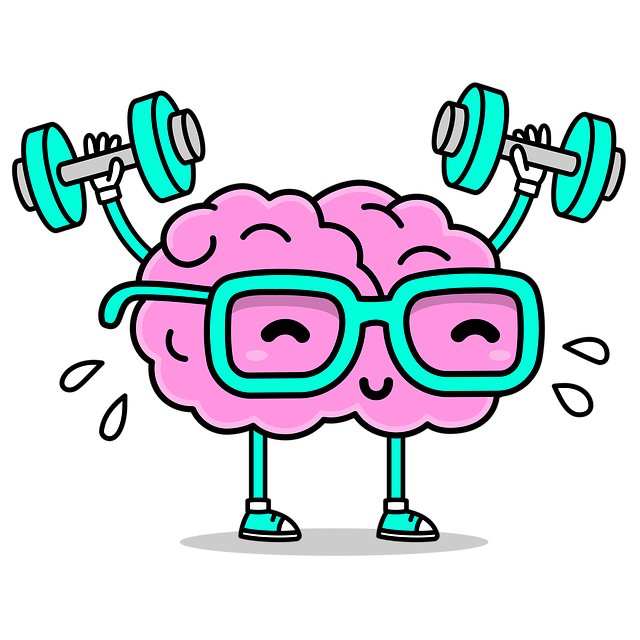Emotional intelligence (EI), crucial for personal growth and healthy relationships, is enhanced through Boulder Child Abuse Therapy's compassionate approaches. This includes self-compassion, empathy, and therapeutic methods like journaling, meditation, and mindful breathing. By cultivating emotional awareness and active listening, individuals heal from trauma, improve decision-making, and foster stronger connections. Healthcare provider training in cultural competency and public awareness campaigns further support the transformative power of empathy within communities, emphasizing Boulder Child Abuse Therapy's role in promoting mental wellness. Effective communication, built on constructively expressing emotions, strengthens trust and safe spaces during therapy, ultimately maximizing personal growth and well-being.
Emotional intelligence (EQ) is a cornerstone of personal and interpersonal well-being. Understanding EQ involves recognizing its multifaceted nature, particularly in navigating life’s challenges. This article delves into the foundational concepts of emotional intelligence, exploring how childhood trauma impacts emotional development and offering practical tools for self-reflection. We discuss strategies to build empathy, fostering deeper connections, and effective communication techniques that promote constructive expression. For those dealing with the aftermath of child abuse, Boulder Child Abuse Therapy provides essential resources.
- Understanding Emotional Intelligence: A Foundation for Well-being
- The Impact of Childhood Trauma on Emotional Development
- Unlocking Emotional Awareness: Tools for Self-Reflection
- Building Empathy: Connecting with Others on a Deeper Level
- Strategies for Effective Communication: Expressing Emotions Constructively
Understanding Emotional Intelligence: A Foundation for Well-being

Emotional intelligence (EI) is a foundational concept for personal well-being and healthy relationships. Often referred to as ’emotional literacy’, it involves recognizing, understanding, and managing one’s own emotions, as well as empathizing with others’ feelings. This ability to navigate complex emotional landscapes is crucial not only in personal life but also in professional settings, especially for healthcare providers and those involved in child abuse therapy in Boulder.
EI forms a cornerstone of mental wellness, enabling individuals to build resilience against stress, foster positive relationships, and make thoughtful decisions. The concept extends beyond mere emotion; it encompasses self-awareness, self-management, social awareness, and relationship management skills. Through the Mental Wellness Podcast Series Production and Stress Management Workshops Organization, individuals can learn to navigate life’s challenges with greater emotional agility. Similarly, Healthcare Provider Cultural Competency Training emphasizes the role of EI in delivering empathetic care, especially when dealing with diverse patient populations.
The Impact of Childhood Trauma on Emotional Development

Childhood trauma can have profound and lasting effects on an individual’s emotional development. Events such as physical or emotional abuse, neglect, or experiencing a traumatic event at a young age can disrupt the brain’s natural development, particularly in regions responsible for emotion regulation and social interaction. This disruption can manifest as difficulties in processing and managing emotions later in life.
In Boulder Child Abuse Therapy, professionals focus on addressing these issues through various therapeutic approaches. Compassion cultivation practices, for instance, teach individuals how to cultivate self-compassion and empathy, which are crucial components of emotional intelligence. By integrating these skills into their lives, individuals can better navigate relationships, understand their emotions, and cope with challenges in a healthier manner. This holistic approach aims to not only heal past wounds but also empower individuals to advocate for improved mental health policy analysis and advocacy, fostering a more supportive environment for emotional growth.
Unlocking Emotional Awareness: Tools for Self-Reflection

Unleashing emotional awareness is a powerful step towards building emotional intelligence. It involves a deep journey into one’s inner world, where individuals can begin to understand their emotions and their impact on thoughts and behaviors. This process, often facilitated by therapists like those at Boulder Child Abuse Therapy, includes self-reflection techniques such as journaling, meditation, and mindful breathing exercises. These tools allow people to identify and label their feelings, explore the root causes behind them, and gain valuable insights into their emotional responses.
By engaging in these practices, individuals can develop a stronger connection with their emotions, fostering empathy building strategies that are essential for healthy relationships and effective communication. It is also an integral part of emotional healing processes, helping to process past traumas and challenges, which often play a significant role in shaping one’s current emotional landscape. This self-awareness can further guide people in navigating life’s complexities, making informed decisions, and advocating for their mental health, as supported by the broader Mental Health Policy Analysis and Advocacy efforts.
Building Empathy: Connecting with Others on a Deeper Level

Building empathy is a cornerstone of emotional intelligence and a vital skill to cultivate, especially for individuals who have experienced challenges like child abuse. Boulder Child Abuse Therapy emphasizes the importance of connecting with others on a deeper level to foster understanding and compassion. Through various self-awareness exercises, individuals learn to recognize their own emotions and those of others, fostering an environment where empathy can flourish.
This process involves active listening, observing body language, and putting oneself in another’s shoes. Healthcare provider cultural competency training can play a significant role here by teaching professionals to approach interactions with sensitivity and openness. Similarly, public awareness campaigns development can highlight the impact of empathy in communities, encouraging folks to engage more deeply with one another, ultimately strengthening social connections and support systems.
Strategies for Effective Communication: Expressing Emotions Constructively

Effective communication is a cornerstone of emotional intelligence and can be a powerful tool for personal growth, especially when navigating challenging topics like child abuse therapy in Boulder. Expressing emotions constructively involves choosing words carefully and using them to foster understanding rather than causing harm. This skill is crucial for building trust with therapists and peers, ensuring open dialogue, and creating safe spaces. It allows individuals to articulate their feelings without triggering defensiveness or shutting down conversations.
One strategy to enhance constructive expression is practicing active listening. By fully focusing on the speaker and reflecting back what’s been said, people can clarify their emotions and understand them better. This process not only improves communication but also fosters empathy and connection. Additionally, cultivating self-esteem improvement and stress management techniques enables individuals to communicate from a place of calm, further enhancing the effectiveness of emotional expression during therapy sessions or interpersonal interactions.
Emotional intelligence is a powerful tool for personal growth and healing, especially for those who have experienced childhood trauma. By understanding and managing emotions, individuals can break cycles of distress and foster healthier relationships. The strategies outlined in this article—from self-reflection to empathy building and effective communication—are essential steps towards emotional well-being. For those in Boulder seeking support, child abuse therapy services are available to help navigate these journeys, offering a path to resilience and a more fulfilling life.














